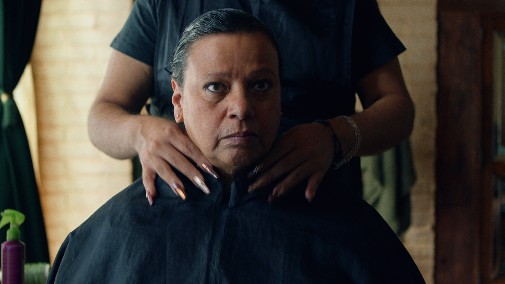Sundance: The elegiac poetry of 'Dos Estaciones'
 Tuesday, January 25, 2022 at 9:00PM
Tuesday, January 25, 2022 at 9:00PM 
Director Juan Pablo González comes from a family of tequila makers in the Jalisco highlands of Mexico. Though never outright stated, such biographical details inform in his fiction feature debut. Dos Estaciones is a love letter to the region and the noble artisanship of making tequila de old-fashioned way, from the azure expansions of the agave fields to the shiny glass bottle. However, it's also a eulogy, a cry of mourning for a dying world. Foreign pressures threaten the long history of the land, buying the fields and factories from families who've owned them for generations. A Mexican tradition thus becomes an American commodity, and there's little to do but honor what's lost, show people its value, its intrinsic beauty, resist through art and remembering…
The eulogistic fervor of capturing the splendor of something at risk of disappearing informs much of Dos Estaciones' lensing. It's a film whose meandering structure in no way reflects the formalistic discipline of its image-making, something that becomes clear from the first few minutes. The work of DP Gerardo Guerra first becomes apparent as he follows his protagonist through the fields and into the tequilera. She's María Garcia, the end of a long line of tequila makers who we first get to know as a confident, assertive figure, walking through her property with both a sense of power and a shadow of weariness. Hers is a losing fight, or so it seems. She's David facing against Golias, only the myth feels fated for defeat this time around.
Making this foregone conclusion all the more painful is María's sense of community as family. Leading lady Teresa Sánchez is shot as if she's the most fascinating landscape in sight, her shoulders reminding one of Atlas bearing the weight of the globe, her eyes pools of infinite sorrow. In that sorrowful gaze, González's camera finds the apprehensions of someone who knows her actions directly impact all those who depend on the business. Instead of emphasizing the importance of bloodlines, Dos Estaciones prefers to shine a light on the people positively affected by the tequileria, their strides of independence even as their initial source of sustenance dries up, overtaken by investors from beyond the border.

Chief among them, hairdresser Tatin emerges as one of the film's richest figures. Her business flourished through María's patronage and communal influence, but, recently, she's found a way to go forward without the tequila maker's help. This development is joyous and sad for the protagonist, a woman who silently confronts the paradoxes of being both central and obsolete in the world she inhabits. Played by first-time actor Tatin Vera, this trans woman is one of many roles that find performers playing fictionalized versions of themselves. The heritage of Latin-American neorealism is strong in Dos Estaciones, as are the origins of its director in non-fiction filmmaking.
A documentarian's eye may be at the center of Dos Estaciones' curious humanism. The monumentality of tradition casts a nourishing shadow over the film, but there are wonders to be found in those individuals whose very existence defies the paradigms of traditionalism. The matter of woman-run businesses and Tatin's gender identity are the prominent examples, though there's little fanfare about either aspect within the story. Even more understated is María's own queerness, implied both by her butch aesthetic and the newfound bond with a young woman played by real-life tequila factory manager Rafaela Fuentes. In their shared scenes, whether taking care of business or wandering the Jalisco landscape, Dos Estaciones finds hopeful variations. They're dissonances within a cinematic requiem, so full of loss and stoicism.
Dos Estaciones is understated and patiently paced, asking the audience to look closer and find the hypnotic qualities in the agave cooking, the factory line, and tequila bottling. It's about people and their land, the cycles of life and living that bind the two together, even when intruders threaten to break them apart. This quasi-docudrama comes to gripping conclusions when desperation flares up with flaming consequences, and heavenly choirs reverberate through the screen. Anchored by Sánchez's projections of fortitude, the film ends as it began, the camera following the actress through the factory, María's domain, her home.
 Dos Estaciones,
Dos Estaciones,  Latin American Cinema,
Latin American Cinema,  Mexico,
Mexico,  Reviews,
Reviews,  Sundance
Sundance 


Reader Comments (2)
Adding this to my watchlist. Gracias Claudio.
thevoid99 -- Thanks for reading. Hope you enjoy the film when you do watch it :)